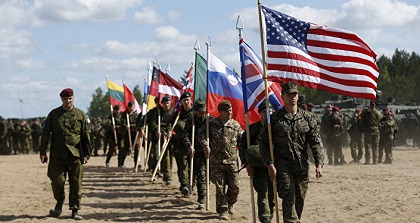In today's interconnected world, the United States plays a pivotal role in international relations and diplomacy. From trade agreements to peace negotiations, the US is at the forefront of shaping global policies and addressing critical global challenges. In this comprehensive exploration of US international relations and diplomacy, we delve into the intricacies of this multifaceted field.
Understanding the Foundations of US International Relations
US international relations and diplomacy have deep historical roots. To comprehend its current state, it's essential to look back at its foundations. The early years of American diplomacy were marked by principles articulated by George Washington in his farewell address, emphasizing neutrality and avoiding entangling alliances. However, as the world evolved, so did America's role in global affairs.
The Evolution of US Diplomacy
The 20th century witnessed significant shifts in US diplomacy, starting with its involvement in World War I. Following this, the United States became a key player in the establishment of international organizations such as the League of Nations and, later, the United Nations. These organizations were aimed at fostering international cooperation and preventing global conflicts.
Cold War Diplomacy
The Cold War era was a defining period in US international relations. The United States and the Soviet Union engaged in a tense standoff, influencing global politics and diplomacy. Proxy wars, nuclear arms races, and ideological conflicts were hallmarks of this era.
Diplomacy in the Post-Cold War World
The end of the Cold War marked a new era in US international relations. With the collapse of the Soviet Union, the United States emerged as the world's sole superpower. This brought about new opportunities and challenges, including efforts to promote democracy, economic globalization, and counter-terrorism.
Key Players in US Diplomacy
The conduct of US international relations and diplomacy is not the sole responsibility of the President. A complex web of actors, including the Department of State, Congress, and various agencies, contribute to shaping the nation's foreign policy. The Department of State, in particular, plays a central role in implementing foreign policy and maintaining diplomatic relations with other countries. Ambassadors, stationed in US embassies around the world, represent the nation's interests and facilitate communication between governments.
Challenges in Contemporary US Diplomacy
Contemporary US international relations and diplomacy are marked by a range of challenges and complexities. Some of the prominent issues include:
Globalization and Trade: The United States is deeply integrated into the global economy. Trade agreements and negotiations with countries and regions worldwide are crucial to ensuring economic prosperity and maintaining diplomatic relationships.
Security Concerns: Terrorism and cybersecurity threats require constant vigilance and international cooperation. US diplomacy seeks to forge alliances and partnerships to address these security challenges effectively.
Climate Change: As climate change accelerates, it has become a major diplomatic priority. The United States participates in international climate agreements and works with other nations to reduce greenhouse gas emissions and combat climate change.
Human Rights: Promoting human rights is a core aspect of US diplomacy. The United States often engages in diplomatic efforts to address human rights abuses and promote democratic values around the world.
Regional Conflicts: Various regional conflicts demand the attention of US diplomats, such as the Middle East peace process, the North Korean nuclear issue, and tensions in the South China Sea. Finding peaceful solutions to these conflicts is a key diplomatic goal.
The Future of US International Relations and Diplomacy
As the world continues to evolve, the United States will face new diplomatic challenges and opportunities. The ability to adapt to changing circumstances, work collaboratively with other nations, and uphold its core values will be critical in shaping the future of US international relations and diplomacy.
In conclusion, US international relations and diplomacy are dynamic and multifaceted fields that have a profound impact on global politics, economics, and security. Understanding the historical context, key players, and contemporary challenges is essential for comprehending the complex role that the United States plays in shaping the world's diplomatic landscape. As we move forward, diplomacy will remain a cornerstone of US foreign policy, helping to navigate the intricate web of international relations and promote peace and prosperity on a global scale.
According to https://www.usshocknews.com/

















0 Comments